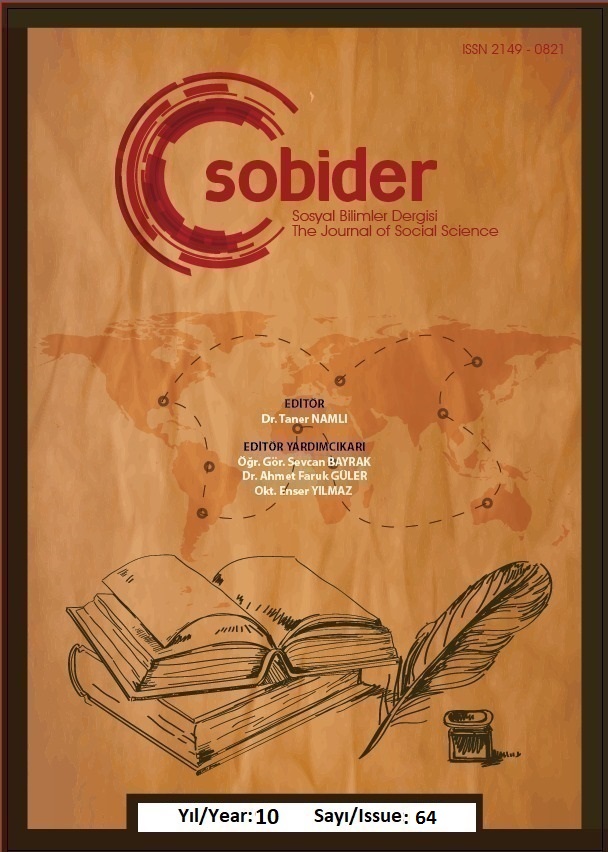COVID-19 Salgınında Yürütülen Sağlıkta Kalite Çalışmalarının Sağlık Çalışanlarına Yansımaları: Yeni Bir Anket Geliştirme Çalışması
Author :
Abstract
Araştırmada Çin’in Vuhan kentinde yeni bir tip Koronavirüse bağlı olarak ortaya çıkan COVID-19 salgınının, sağlığa ilişkin riskler temelinde incelenmesi ve salgın sürecinde uygulanan kalite çalışmalarının sağlık çalışanlarına etkisinin araştırılması amaçlanmıştır. Bu amaca ulaşmak için yeni geliştirilen 41 maddelik anket (COVID-19 Salgınında Sağlıkta Kalite Çalışmaları Ölçeği ismiyle) İstanbul’daki kamu sağlık tesislerinde çalışan 416 sağlık personeline, pandeminin ikinci dalgası sırasında uygulanmıştır. Bu yeni ölçek ve alt boyutlarının tanımlayıcı istatistikleri değerlendirildiğinde, kurum sağlığı ve güvenirliği ortalama puanı 3.78, kalite standartları güveni ortalama puanı 3.69, salgın hastalık eğitimi ortalama puanı 4.28, kalite standartları gerekliliği ortalama puanı 3.58 ve sağlıkta kalite standardı genel ortalama puanı ise 3.83 olarak görülmektedir. Sonuçlar sağlık çalışanlarının homojen bir toplumsal grup olmadığı, sağlıkta kalite yönetimine yönelik farklı beklentilere sahip oldukları ayrıca bu durumun, sağlık çalışanlarını “tedavi eden” aktörler olarak gören tıp biliminden farklı bir şekilde, koşullarının da genel toplumsal çerçeveden bağımsız düşünülemeyeceğini iddia eden sağlık sosyolojisinin temel argümanını kanıtlar niteliktedir.
Keywords
Abstract
The aim of this study is to examine the COVID-19 epidemic, which emerged due to a new type of coronavirus in Wuhan, China, on the basis of health risks and to investigate the effects of quality studies conducted on the healthcare workers during the pandemic. In order to do this, a 41-itemed new survey was developed (named as Quality Studies in Health during the COVID-19 Epidemic Scale) and was applied to 416 healthcare personnel working in public healthcare facilities in Istanbul during the second
wave of the pandemic.W hen the descriptive statistics of the Scale and its sub-dimensions are evaluated, the average score of institutional health and reliability is 3.78, the average score of quality standards trust is 3.69, the average score of epidemic disease education is 4.28, the average score of quality standards requirement is 3.58, and the average score of quality standard in health is general. The average score is seen as 3.83. As a conclusion of the study the main argument of health sociology (unlike that of medical science, which sees health workers only as "remedial" actors) which claims that health workers are not a homogeneous social group,the y have different expectations for quality management in health, and that this situation cannot be
considered independently of the general social framework is evidentiary.





